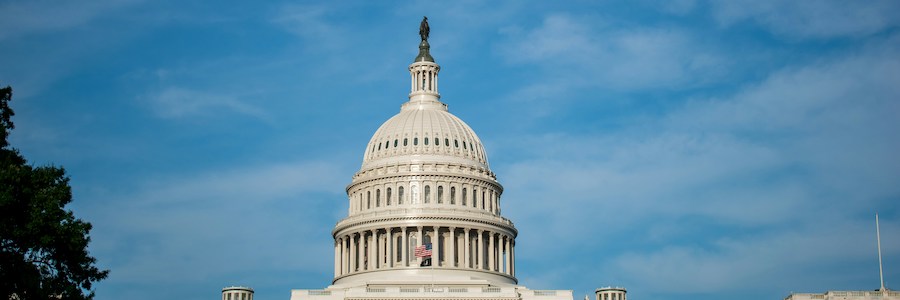By Matthew Viohl
Permission From the California Farm Bureau Federation
With 2024 now upon us, crowded gyms mark the beginning for many who have kickstarted their New Year’s resolutions. Folks like me aren’t the only ones trying to shed some weight or otherwise roll back on some excesses of the previous year.
In Washington, D.C., members of Congress are also working on their version of slimming down. Their focus is less on waistlines and more on budgetary spending and fiscal diets.
You may recall that last November, federal lawmakers only averted a government shutdown by passing a stopgap funding measure.
Now, instead of setting one deadline to ultimately pass a budget, they split it up in a “bifurcated” approach. As a result, short of additional action by Congress, funding for the U.S. Department of Agriculture and several other agencies could run out this month, while remaining agencies, including Commerce and Defense, could be out of cash by early February.
In theory, this budgeting split may avoid the need for one massive omnibus bill that gets rushed through in just a few days. Legislators can now negotiate with a bit more nuance among the different agencies and have the added benefit of having “only” a partial shutdown if they fail to meet the latest deadlines.
As of this writing, House Speaker Mike Johnson, R-La., faces backlash from some fellow Republicans over a tentative spending deal with Senate Majority Leader Chuck Schumer, D-N.Y. Also complicating matters is a careful highwire act between the parties on a possible border deal.
President Joe Biden and Democrats are pushing for $100 billion in aid to Ukraine in its war with Russia, while Republicans in both chambers are saying any such funds will require major concessions on immigration and border policy.
With the congressional job approval rating at a meager 15% last month, the elephant in the room may be simple political math. This year brings a major election, and the parties historically do their best to avoid handing their counterparts any legislative wins in such an environment. While lawmakers might publicly scoff at such a notion, those calculations are most certainly part of their thinking.
At the end of the day, there is reasonable hope that both parties may realize other incentives as the election season gears up. Government shutdowns aren’t just bad for families and businesses, they’re also bad for reelection campaigns.
Until that realization comes, the typically bipartisan farm bill still awaits a full extension. The latest chatter on Capitol Hill is that we might see some draft language as early as March. This would make sense as the next month will be dedicated to the funding resolutions, and it will likely take several more weeks for agricultural leaders to secure the floor time they’re seeking for the farm bill.
Given the bill’s extensive nature, I don’t expect Congress to drop it on a Wednesday afternoon and then pass it by Friday night. This will almost assuredly take weeks to months to get ironed out before it’s ready for passage.
As we have argued many times before, food security is national security. With the farm bill being bipartisan in nature, it should be something lawmakers can go back to their states and districts and argue about how they helped improve the lives of not just farmers and ranchers but all the communities in which they help feed.
In an ideal world, this dream of a completed farm bill can be realized by May or June, just before things get too crazy by summer.
While I’m still not ready to say a 2020 presidential rematch is a sure-fire thing (I’ll wait until after New Hampshire votes), it looks as though Biden-Trump 2.0 is in the cards. Regardless of your political leanings, it seems this election cycle is all but certain to be even more acrimonious than the last one.
In times like these, I’m sometimes envious of the few dozen people who live on Amsterdam Island. It’s the closest we have to America’s antipode, which is a fancy way to say the exact opposite spot from us on the other side of the globe, somewhere in the middle of the Indian Ocean.
I don’t know what life is like on this tiny island, but I’m almost certain people there will manage to go through 2024 without having to watch a single political advertisement on TV.
Before we get too despondent on the prospects of a brutal election season, we must face the tasks ahead of us: Keep government funded, pass a farm bill—and maybe lose a few pounds.
While I’m not always great at instilling confidence in the machinations of Washington, D.C., these days, I do think our own California delegation is hard at work in ensuring two of those priorities will get done.
As for me, I may have to take a raincheck on the weight loss.
Matthew Viohl is director of federal policy for the California Farm Bureau. He may be contacted at [email protected]. Permission From the California Farm Bureau Federation.







